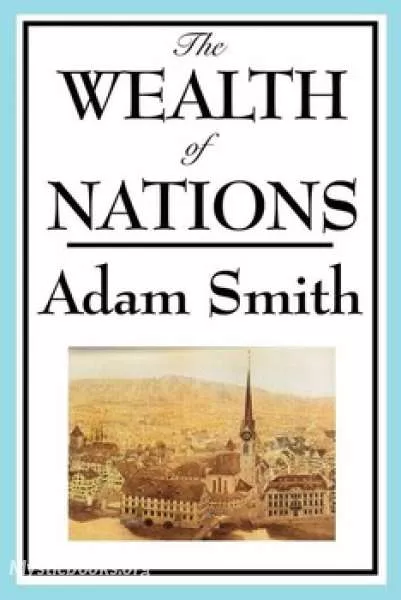
The Wealth of Nations, Book 5
by Adam Smith
'The Wealth of Nations, Book 5' Summary
Book V: Of the Revenue of the Sovereign or Commonwealth
Smith postulated four "maxims" of taxation: proportionality, transparency, convenience, and efficiency. Some economists interpret Smith's opposition to taxes on transfers of money, such as the Stamp Act, as opposition to capital gains taxes, which did not exist in the 18th century. Other economists credit Smith as one of the first to advocate a progressive tax. Smith wrote, "The necessaries of life occasion the great expense of the poor. They find it difficult to get food, and the greater part of their little revenue is spent in getting it. The luxuries and vanities of life occasion the principal expense of the rich, and a magnificent house embellishes and sets off to the best advantage all the other luxuries and vanities which they possess. A tax upon house-rents, therefore, would in general fall heaviest upon the rich; and in this sort of inequality there would not, perhaps, be anything very unreasonable. It is not very unreasonable that the rich should contribute to the public expense, not only in proportion to their revenue, but something more than in that proportion" Smith believed that an even "more proper" source of progressive taxation than property taxes was ground rent. Smith wrote that "nothing [could] be more reasonable" than a land value tax.
Of the Expenses of the Sovereign or Commonwealth: Smith uses this chapter to comment on the concept of taxation and expenditure by the state. On taxation, Smith wrote,
"The subjects of every state ought to contribute towards the support of the government, as nearly as possible, in proportion to their respective abilities; that is, in proportion to the revenue which they respectively enjoy under the protection of the state. The expense of government to the individuals of a great nation is like the expense of management to the joint tenants of a great estate, who are all obliged to contribute in proportion to their respective interests in the estate. In the observation or neglect of this maxim consists what is called the equality or inequality of taxation."
Smith advocates a tax naturally attached to the "abilities" and habits of each echelon of society.
For the lower echelon, Smith recognised the intellectually erosive effect that the otherwise beneficial division of labour can have on workers, what Marx, though he mainly opposes Smith, later named "alienation,"; therefore, Smith warns of the consequence of government failing to fulfill its proper role, which is to preserve against the innate tendency of human society to fall apart.
..."the understandings of the greater part of men are necessarily formed by their ordinary employments. The man whose whole life is spent in performing a few simple operations, of which the effects are perhaps always the same, or very nearly the same, has no occasion to exert his understanding or to exercise his invention in finding out expedients for removing difficulties which never occur. He naturally loses, therefore, the habit of such exertion, and generally becomes as stupid and ignorant as it is possible for a human creature to become. The torpor of his mind renders him not only incapable of relishing or bearing a part in any rational conversation, but of conceiving any generous, noble, or tender sentiment, and consequently of forming any just judgment concerning many even of the ordinary duties of private life... But in every improved and civilized society this is the state into which the labouring poor, that is, the great body of the people, must necessarily fall, unless government takes some pains to prevent it."
Under Smith's model, government involvement in any area other than those stated above negatively impacts economic growth. This is because economic growth is determined by the needs of a free market and the entrepreneurial nature of private persons. A shortage of a product makes its price rise, and so stimulates producers to produce more and attracts new people to that line of production. An excess supply of a product (more of the product than people are willing to buy) drives prices down, and producers refocus energy and money to other areas where there is a need.
Of the Sources of the General or Public Revenue of the Society: In his discussion of taxes in Book Five, Smith wrote:
"The necessaries of life occasion the great expense of the poor. They find it difficult to get food, and the greater part of their little revenue is spent in getting it. The luxuries and vanities of life occasion the principal expense of the rich, and a magnificent house embellishes and sets off to the best advantage all the other luxuries and vanities which they possess. A tax upon house-rents, therefore, would in general fall heaviest upon the rich; and in this sort of inequality there would not, perhaps, be anything very unreasonable. It is not very unreasonable that the rich should contribute to the public expense, not only in proportion to their revenue, but something more than in that proportion."
He also introduced the distinction between a direct tax, and by implication an indirect tax (although he did not use the word "indirect"):
"Capitation taxes, so far as they are levied upon the lower ranks of people, are direct taxes upon the wages of labour, and are attended with all the inconveniences of such taxes."
And further:
"It is thus that a tax upon the necessaries of life operates exactly in the same manner as a direct tax upon the wages of labour."
This term was later used in United States, Article I, Section 2, Clause 3 of the U.S. Constitution, and James Madison, who wrote much of the Constitution, is known to have read Smith's book.
Book Details
Language
EnglishOriginal Language
EnglishPublished In
1776Authors
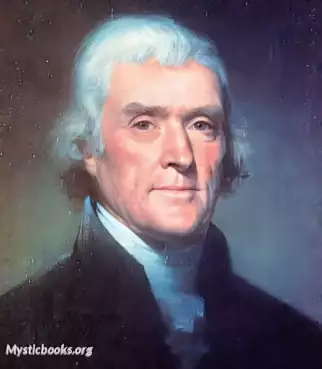
Adam Smith
Scotland
Adam Smith was a Scottish economist, philosopher as well as a moral philosopher, a pioneer of political economy, and a key figure during the Scottish Enlightenment, also known as ''The Father of Econo...
Books by Adam SmithDownload eBooks
Listen/Download Audiobook
- Select Speed
Related books

Say Not the Struggle Naught Availeth by Arthur Hugh Clough
Arthur Hugh Clough's "Say Not the Struggle Naught Availeth" is a collection of poems reflecting the intellectual and moral turmoil of Victorian Englan...
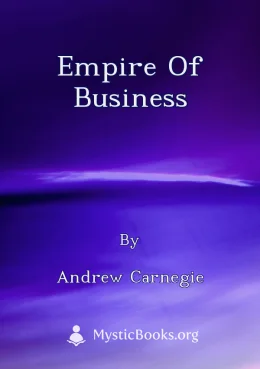
Empire of Business by Andrew Carnegie
In "Empire of Business", renowned industrialist and philanthropist Andrew Carnegie shares his insights on the economic landscape of America at the tur...
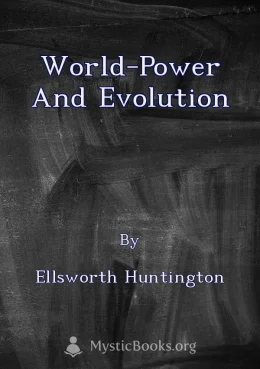
World-Power and Evolution by Ellsworth Huntington
Ellsworth Huntington's "World-Power and Evolution" delves into the intricate relationship between climate, civilization, and human progress. He argues...

Orlando. A Biography by Virginia Woolf
Orlando is a groundbreaking satirical novel that explores the nature of gender, identity, and time. The novel follows the life of Orlando, a young nob...
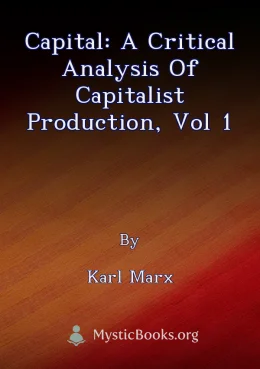
Capital: a critical analysis of capitalist production, Vol 1 by Karl Marx
Capital, Volume I is the first of three volumes in Karl Marx’s monumental work, Das Kapital, and the only volume to be published during his lifetime,...
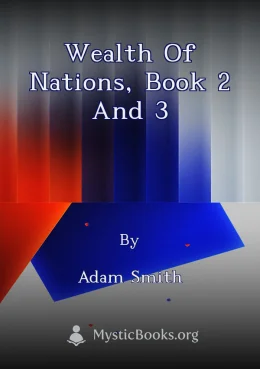
Wealth of Nations, Book 2 and 3 by Adam Smith
An Inquiry into the Nature and Causes of the Wealth of Nations is the magnum opus of the Scottish economist Adam Smith, published on March 9, 1776 dur...

Mr. Incoul's Misadventure by Edgar Saltus
Mr. Incoul's Misadventure is a satirical novel that dissects the foibles and moral decay of the upper class. It's a witty exploration of human nature...

Rousseau by Paul Hensel
In diesem Buch beleuchtet Paul Hensel Leben und Werk des einflussreichen Denkers Jean-Jacques Rousseau. Es bietet einen umfassenden Überblick über Rou...

Lake by Matthew Arnold
Matthew Arnold's "Switzerland" is a lyrical poem that explores themes of nature, solitude, and the complexities of human existence. Through vivid des...

Favole di Jean de La Fontaine: Libro 03 by Jean de La Fontaine
Nei 12 volumi delle "Favole" (1669 - 1693) Jean de La Fontaine rinnovò la tradizione esopica, rappresentando la commedia umana. Quest'opera dimostrò i...
Reviews for The Wealth of Nations, Book 5
No reviews posted or approved, yet...